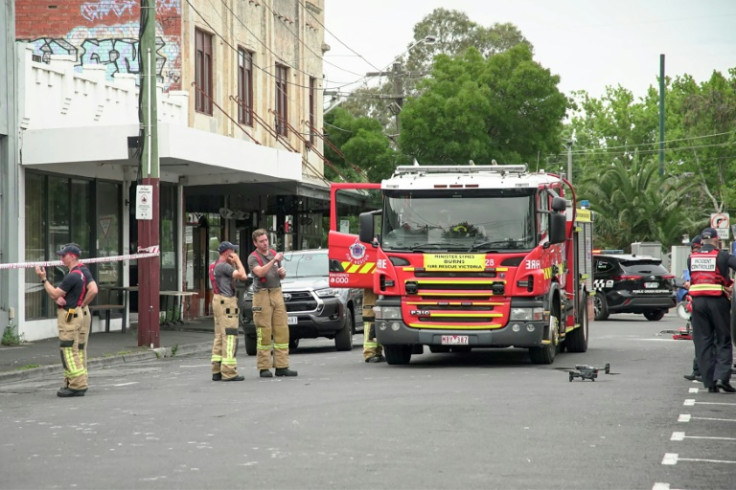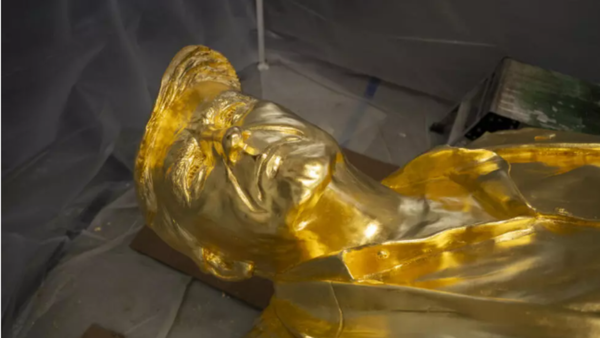
Prime Minister Anthony Albanese on Sunday called a deliberately lit fire in a Melbourne synagogue an act of "terrorism" and warned about the "worrying rise in anti-Semitism" in Australia.
Mask-wearing arsonists set the Adass Israel Synagogue in a Melbourne suburb of Ripponlea ablaze before dawn on Friday, gutting much of the building, though there were no serious injuries. Authorities are still on the hunt for the perpetrators.
Albanese said Sunday the fire at the synagogue was the "definition of terrorism".
"There has been a worrying rise in anti-Semitism," the prime minister told reporters, adding that he would continue to "call it out".
"Terrorism is something that is aimed at creating fear in the community and the atrocities that occurred at the synagogue in Melbourne clearly were designed to create fear in the community," he said.
Australian police -- who determine whether an incident is a terrorist act -- will meet Monday to see if the fire meets the official criteria, as they continue to hunt down the two arsonists.
The attack has drawn widespread condemnation within Australia and abroad.
Conservative politicians and Jewish groups have criticised Albanese's government for what they say is a failure to call out anti-Semitism.
Opposition leader Peter Dutton pointed the finger at Albanese, saying Sunday that the prime minister believed "that by not taking a strong stance in relation to anti-Semitism, that somehow that will deliver him political benefit domestically".
In the wake of the attack, Israel's Prime Minister Netanyahu said the "heinous act cannot be separated from the anti-Israel sentiment emanating from the Australian Labor government", citing Canberra's decision to vote for a UN resolution demanding the end of Israel's "unlawful" occupation of Palestinian territory.
"Anti-Israel sentiment is anti-Semitism," he said.
His comments came just days after Australia voted for a United Nations General Assembly resolution that demanded the end of Israel's "unlawful presence in the Occupied Palestinian Territory".
New Zealand, Britain, and Canada were among 157 countries voted for the resolution, with eight against.
Australian Foreign Minister Penny Wong defended the vote, saying "Australia is part of the overwhelming majority of the international community that wants to end the war and see a two-state solution".
But while Australians were "free to support or disagree with the actions of Israel", Wong said this must not be used "as a cloak for prejudice".
"Targeting the Australian Jewish community is an act of anti-Semitism and utterly unacceptable," Wong said, adding that "turning this into a political fight is reckless".
The war in Gaza has sparked protests from supporters of Israel and Palestinians in cities around Australia, as in much of the world.







